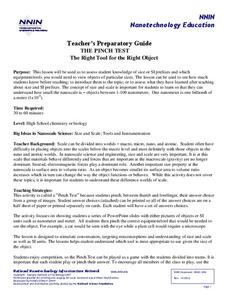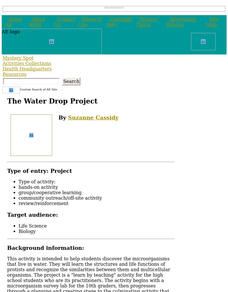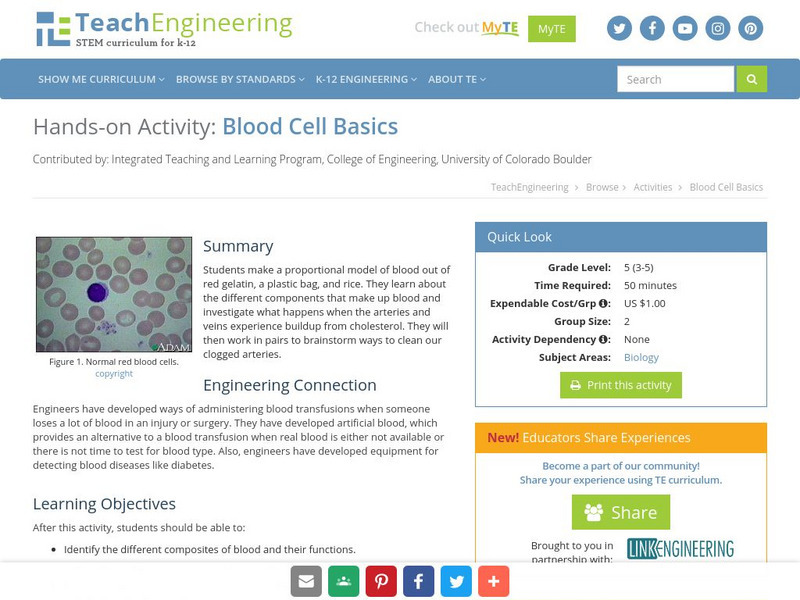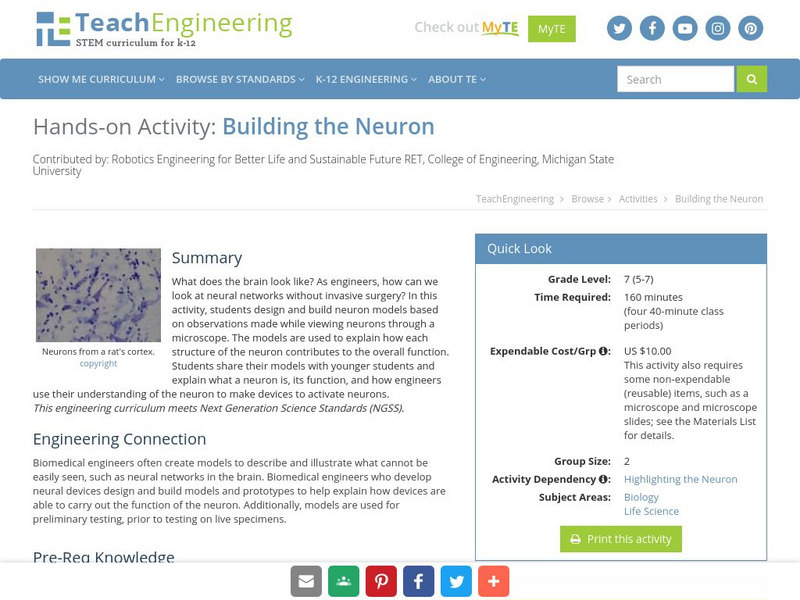Baylor College
Tools of Magnification
Life science learners need to be able to use a microscope. With this comprehensive resource, they first experience how lenses and magnification work, and then get familiar with using a compound microscope. Tremendous background...
American Chemical Society
Mentos and Diet Coke!
Let the bubbles tell the story. Using a hands-on lesson, budding scientists learn how carbon dioxide in soda interacts with objects placed in the soda. The lesson explains how the gas adheres to the surface of the objects based on the...
National Nanotechnology Infrastructure Network
The Pinch Test
Test your pupils' understanding of the scale from macro to atomic. While displaying images of different materials, learners identify what they would need to make that material visible. Their choices range from the human eye to an...
Science Matters
Mighty Microorganisms
How can you tell if a microorganism is helpful or detrimental to an ecosystem? Learners inspect slides or pictures of microorganisms and record their observations to...
Curated OER
The Water Drop Project
Students discover the microorganisms that live in water. They study the structures and life functions of protists and recognize the similarities between them and multicellular organisms.
TeachEngineering
Teach Engineering: Grow Your Own Algae!
Students discover how tiny microscopic plants can remove nutrients from polluted water. They also learn how to engineer a system to remove pollutants faster and faster by changing the environment for the algae.
TeachEngineering
Teach Engineering: Blood Cell Basics
In this lesson students learn about the circulatory system and how it relates to engineering. Then in a hands-on activity they create a model of blood. Students also act out cholesterol in a blocked artery and look at blood cell in a...
TeachEngineering
Teach Engineering: Building the Neuron
In this activity, students design and build neuron models based on observations made while viewing neurons through a microscope.







